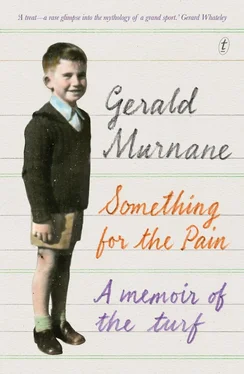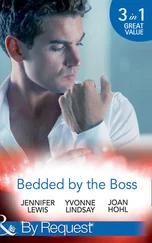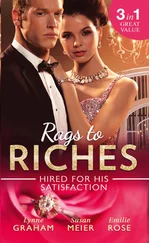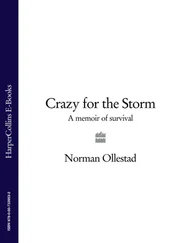Music was an important part of every radio drama, and I may even have been moved to set about composing my own drama after having heard some especially plangent passage from the huge cathedral organ. My theme was my father’s progress from an insignificant babe-in-arms to a person of considerable importance, which was what I took him for at the time. I knew hardly anything of my father’s life story. I knew he had been born at Allansford, which is now almost a suburb of Warrnambool but was then a mere township on the Hopkins River and the last station on the railway line from Melbourne to Warrnambool. I knew he was the third of nine children and the oldest boy among them. His younger brothers had never left the district around Warrnambool, but my father had left home and had travelled all over Australia before marrying in his mid-thirties. When I, his oldest child, was born, he had been a warder at Pentridge Prison. He had moved to Bendigo to be the Education Department’s attendance officer for the city and for much of northern Victoria. It was a modestly paid post, but it required him to visit many large schools, to inspect the attendance rolls, to confer with head teachers, and to interview the parents of truants. Many of these he had to summons to court, and on the day of their court appearance he had to act as prosecutor. He was a talkative, affable man who made friends easily. Another sort of man might have crept into and out of the head teacher’s office in the many schools that he visited but my father enjoyed taking morning tea with the whole staff in most of the many schools in his jurisdiction. There was also his career, so to call it, as a racegoer and punter. I knew hardly anything about his losses, but I recalled the many evenings when he had come home with crayfish and ice-cream and the family had feasted after one of his big wins. While I passed the time in the cathedral, I merely noted rather than organised the wealth of subject matter available for my radio drama and tried to imagine the powerful impression it would make on its many listeners. As I’ve said, I was daydreaming.
My dramatised story would have followed an upward trajectory, so to speak. I did not learn for many years afterwards that the man beside me in the cathedral that morning was at one of the lowest points in his life. My parents had been hinting for some time that we might soon leave Bendigo for the Western District. My brothers and I were warned to say nothing of this at school. We were actually excited by the prospect of a move to the region where we spent our holidays. Although, for much of my later life, I’ve thought of Bendigo as a lost golden paradise, I was not at all dismayed, in 1948, at the prospect of leaving it forever. And after we left, only a few weeks after the morning of the solemn high mass in the cathedral, our moving into a dilapidated house from which my brothers and I had to walk more than three kilometres to school seemed more an adventure than any sort of family tragedy.
I learned the simple truth many years later from my mother. I should have worked it out long before, but where human behaviour is concerned I’m the least perceptive of persons. I should have understood long before that my father’s moving from Bendigo to the Western District at the age of forty-five could never have seemed anything but an admission of utter failure, either to himself or to his siblings and his parents and to those who had known him as a young man. He had left his father’s dairy farm more than twenty-five years ago. He was not going to follow the gruelling life of a dairy farmer, even if it should lead, as it led for his brothers, to his one day acquiring his own farm. Who knows what exactly he looked forward to when he left home — travel? adventure? a wife and children? new friends? wealth? He certainly gained the first four but not, alas, the fifth. Whatever pretences he might have adopted, it would have been absolutely clear to his family and to anyone in the district who gave any thought to the matter that my father’s arrival in Mepunga East from Bendigo was no triumphal homecoming but its stark opposite. The house we moved into was on the way to becoming derelict, the sort of house that passing children throw stones at or nickname the Ghost House. My father could not afford a car. While even the poorest farmer in the district chugged around in some sort of 1930s jalopy, my father’s sole means of travel was an old pushbike that he had found in the junk room of his parents’ farmhouse. He rode the bike five kilometres every morning before daylight to the farm of a widow whom, as it happened, he had known since childhood and who would have been well able to appreciate his comedown. He milked her cows morning and evening and did labouring jobs between times. He was a share farmer, on the lowest rung of the social ladder as it was envisaged by all in the district.
And why had he come to this? Because he had bet beyond his means — not once or twice but again and again while he chased his losses, and not in cash, which might have been bad enough, but on credit and with a pair of bookmakers who could almost have been called friends of his: the Bourke brothers, my father’s fellow parishioners at St Kilian’s, on the corner of Chapel Street and McCrae Street in Bendigo.
Dear old St Kilian’s! If, during a word-association exercise, someone should fire at me the word church , I would fire back the words St Kilian’s . But that’s part of another story. In Tamarisk Row , the boy Clement sometimes begged his father for the price of a malted milk so that he, the boy, could enjoy his frothy drink in the shop across the road from the church and could escape the boredom of having to stand in the shade of the date palms in the churchyard while his father and a half-dozen racing men talked endlessly about races already run and races still to be run. Among the half dozen were fictional versions of the Bourke brothers. I have a vague recollection of two ginger-haired, easygoing men. How was I to know, on the morning when my father led me by a roundabout route well clear of St Kilian’s to the cathedral in Golden Square, that his sole reason for doing so was that he could no longer face the Bourke brothers? How could I have known, while I idled away my time in the cathedral, that the hero of my radio drama had led me to that place of golden light and soulful music only in order to hide from his bookmakers, the men that he was soon to welsh on?
24. Mary Christian Murday of the Same Address
I’VE MENTIONED ALREADY in this book that I’ve hardly ever enjoyed watching a film. The notion that people reveal their true selves by talking, shouting, rolling their eyes, or otherwise gesturing seems absurd to me, who have tried all my life to use speech and body language in order to conceal rather than reveal. I have long believed that a person best explains himself or herself when writing to a reader, either real or imaginary. Nevertheless, and although I’ve probably watched fewer films and stage plays than anyone of my age and cultural background, I can still recall a few images that I’ve watched and I’ll admit that those images have been of value to me.
It may have been as long ago as the 1970s when my wife, who did not share my poor opinion of film and the theatre, persuaded me to watch a film version of what had been originally a stage play. The title was Separate Tables , and the playwright was, I think, Terence Rattigan. I recall that the plot was intricate — far too intricate for me. The characters were mostly residents of some sort of boarding house or guesthouse. Some, I seem to recall, were singles while others were couples. While the action went forward, all manner of tensions arose among the various characters. Only one resident of the place seemed unaffected by these tensions. This character was a mannish-looking woman who sat alone every morning while the others arranged themselves in different groups according to the subtle dynamics of the play. Whenever the camera picked her up, she was sitting alone and taking no notice of her fellow guests or even of the food that she was eating, and all the while she was putting pencil marks on a newspaper, which the viewer had previously learned was the paper that published form guides every day for every race meeting in Great Britain.
Читать дальше












